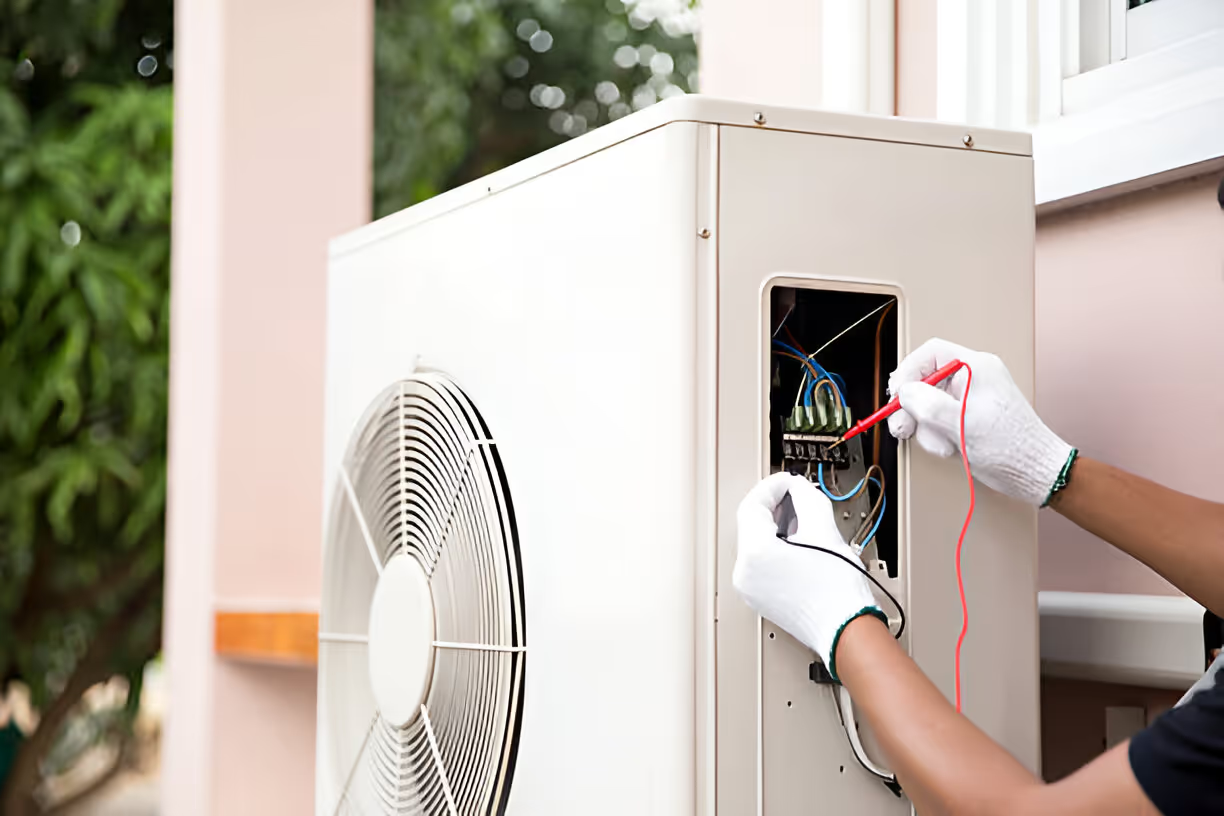Heat Pump Maintenance in Babylon, NY
Regular heat pump maintenance in Babylon, NY keeps your system efficient, reliable, and long lived while reducing energy bills and unexpected breakdowns. In this coastal Long Island community, salt air, humid summers, and cold winters create unique stresses on heat pumps. Preventative maintenance programs tailored to Babylon homes address those local factors with seasonal tune ups, targeted inspections, and recurring service that preserves comfort year round.

Why preventative heat pump maintenance matters in Babylon, NY
- Protects equipment from coastal corrosion. Salt and moisture can accelerate wear on outdoor coils, fasteners, and electrical contacts. Regular cleaning and corrosion checks minimize long term damage.
- Maintains efficiency through humid summers and cold winters. Proper airflow, refrigerant charge, and calibrated controls keep running costs down during both cooling and heating seasons.
- Reduces risk of no heat or no cool events during peak demand. Seasonal checks catch small issues before they cause failures on the hottest or coldest days.
- Supports rebate eligibility and warranty requirements. Many New York and utility rebate programs, and some manufacturer warranties, require proof of periodic maintenance.
What a seasonal heat pump tune up includes
A comprehensive tune up covers mechanical, electrical, and performance items so the system operates as designed.
- Filter inspection and replacement guidance
Clean filters improve airflow and reduce strain on the compressor. Frequency depends on home occupancy and filters used. - Coil and condenser cleaning
Remove dirt, pollen, salt residue, and debris from outdoor coils and indoor evaporator coils to restore heat transfer. - Refrigerant level checks and leak detection
Measure charge, test for leaks, and verify superheat and subcooling to ensure efficient operation. - Electrical and safety inspections
Tighten and test connections, inspect capacitors, contactors, relays, and fuses, and verify proper grounding. - Performance and efficiency testing
Record operating pressures, temperatures, airflow, and system runtime to benchmark performance and identify declining efficiency. - Thermostat and control verification
Confirm thermostat calibration, control sequences, and set back schedules for accurate temperature control. - Defrost cycle and reversing valve checks
Verify defrost operation and reversing valve function so heating performance is reliable in cold weather. - Drain and condensate inspection
Clear drain lines and pans to prevent overflow and microbial growth.
Common heat pump issues in Babylon and how maintenance prevents them
- Low airflow or clogged filters: Causes short cycling and poor comfort. Regular filter checks fix this quickly.
- Reduced capacity from dirty coils: Leads to higher energy use. Coil cleaning restores capacity.
- Refrigerant leaks: Small leaks reduce efficiency and can damage the compressor. Early detection and repair protect the system.
- Electrical failures from corrosion: Salt corrosion can loosen or degrade terminals. Tightening and protective coatings prevent failures.
- Faulty defrost cycles in winter: Ice buildup on the outdoor unit reduces heat output. Testing defrost components keeps heating reliable.
- Worn motors and bearings: Lubrication and component checks catch wear before failure.
Diagnostic and testing process — what to expect
A methodical diagnostic process provides a clear picture of system health.
- Review system history and any recent performance complaints.
- Visual inspection of indoor and outdoor units for damage, corrosion, and debris.
- Measure airflow, static pressure, and inspect duct connections.
- Check refrigerant pressures, calculate superheat/subcooling, and scan for leaks.
- Test electrical components under load, including capacitors and contactors.
- Run performance tests for heating and cooling modes and record efficiency data.
- Deliver a written report that explains findings, recommended repairs, and projected benefits.
Typical repairs and solutions explained
When maintenance uncovers problems, common repairs include:
- Refrigerant recharge and leak repair: Restore proper charge and seal leaks to protect compressor life.
- Coil repair or replacement: Address corrosion or fin damage that impairs heat transfer.
- Component replacement: Replace worn capacitors, contactors, fan motors, or reversing valves to restore reliability.
- Duct sealing and airflow adjustments: Improve distribution and reduce run times.
- Control upgrades and thermostat reprogramming: Enhance efficiency with correct set points and schedules.
Each repair targets the root cause so the same issue does not recur quickly.
Recommended maintenance schedule and membership plans
For Babylon homes, a two visit per year preventative schedule is standard:
- Spring tune up (pre-cooling season): Focus on cooling mode, outdoor coil cleaning, refrigerant check, and airflow.
- Fall tune up (pre-heating season): Check heating performance, defrost cycle, reversing valve, and electrical components.
Membership plans typically include:
- Two seasonal tune ups per year
- Priority scheduling during peak seasons
- Discounted diagnostic and repair labor rates
- Filter replacement reminders or included filters
- A documented service history for warranty and rebate requirements
Memberships provide predictable care and often deliver greater lifetime value than one-off visits.
How recurring service agreements work
A straightforward recurring agreement keeps maintenance consistent and documented.
- Initial system evaluation and baseline performance report.
- Agreement terms that specify the number of visits, included inspections, and any member discounts.
- Preseason scheduling for spring and fall visits with service reminders.
- Service technicians perform the agreed tune ups and record measurements and adjustments.
- A cumulative service record is maintained to support warranties and potential rebate applications.
This structure reduces lapses in maintenance and creates a verifiable history of care.
Simple homeowner maintenance between visits
- Replace or clean filters every 1 to 3 months depending on use.
- Keep at least 2 feet clearance around the outdoor unit and rinse off salt residue when practical.
- Trim plants and remove debris from around the condenser.
- Check thermostat batteries and settings seasonally.
- Keep vents and supply registers unobstructed for good airflow.
Proper homeowner care extends the time between major repairs and improves efficiency.
ConclusionConsistent heat pump maintenance in Babylon, NY protects your comfort, lowers energy bills, and extends equipment life. Seasonal tune ups, targeted checks for coastal corrosion, refrigerant and electrical diagnostics, and a recurring maintenance plan create predictable performance and fewer emergency repairs. For homeowners who want dependable year round comfort and documented system care, a preventative heat pump maintenance program tailored to Babylon climate conditions is the most effective approach.
Customer Testimonials
Hear directly from homeowners who trust Bobby O’s HVAC Inc. for fast response times, honest service, and lasting comfort.











